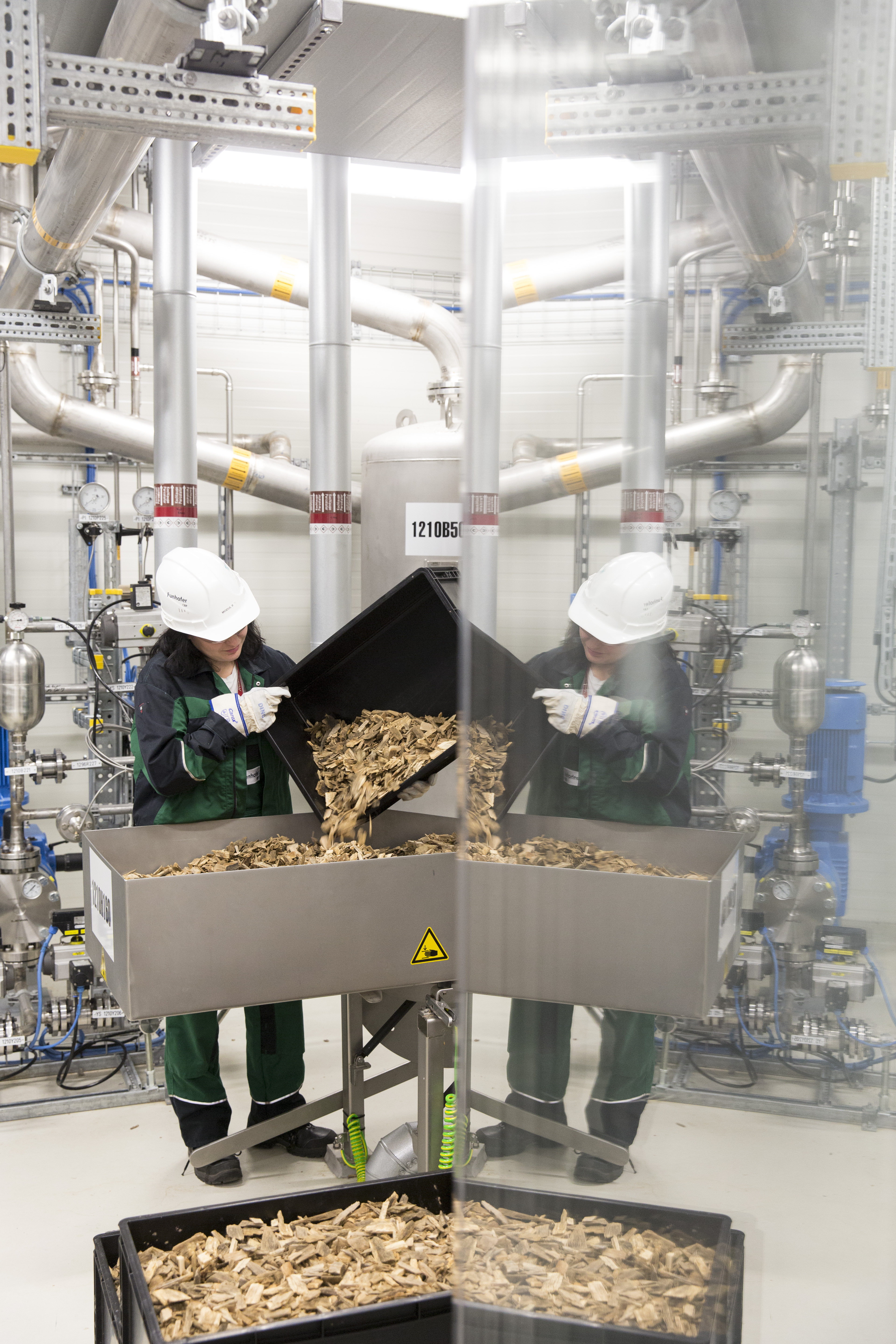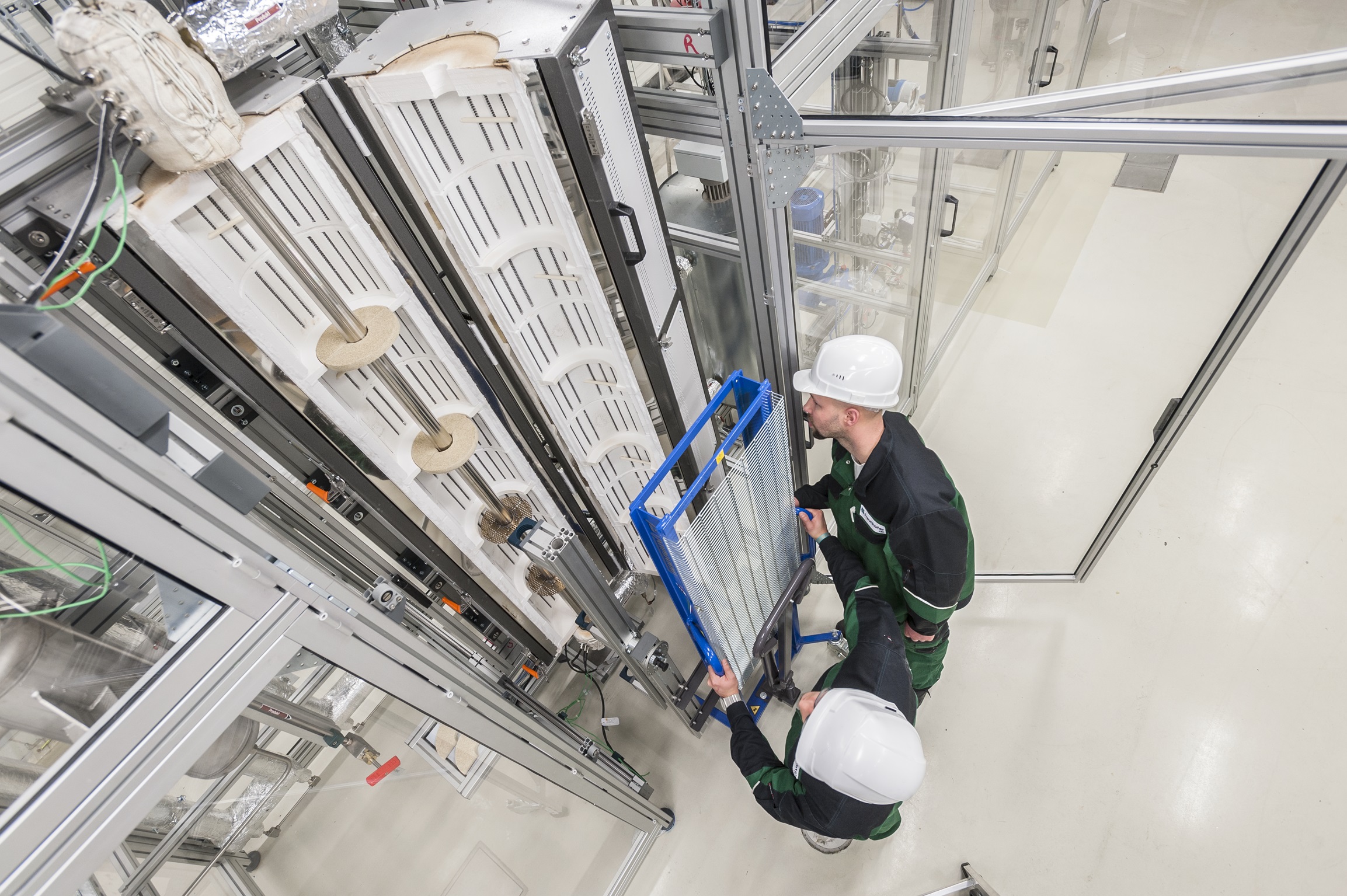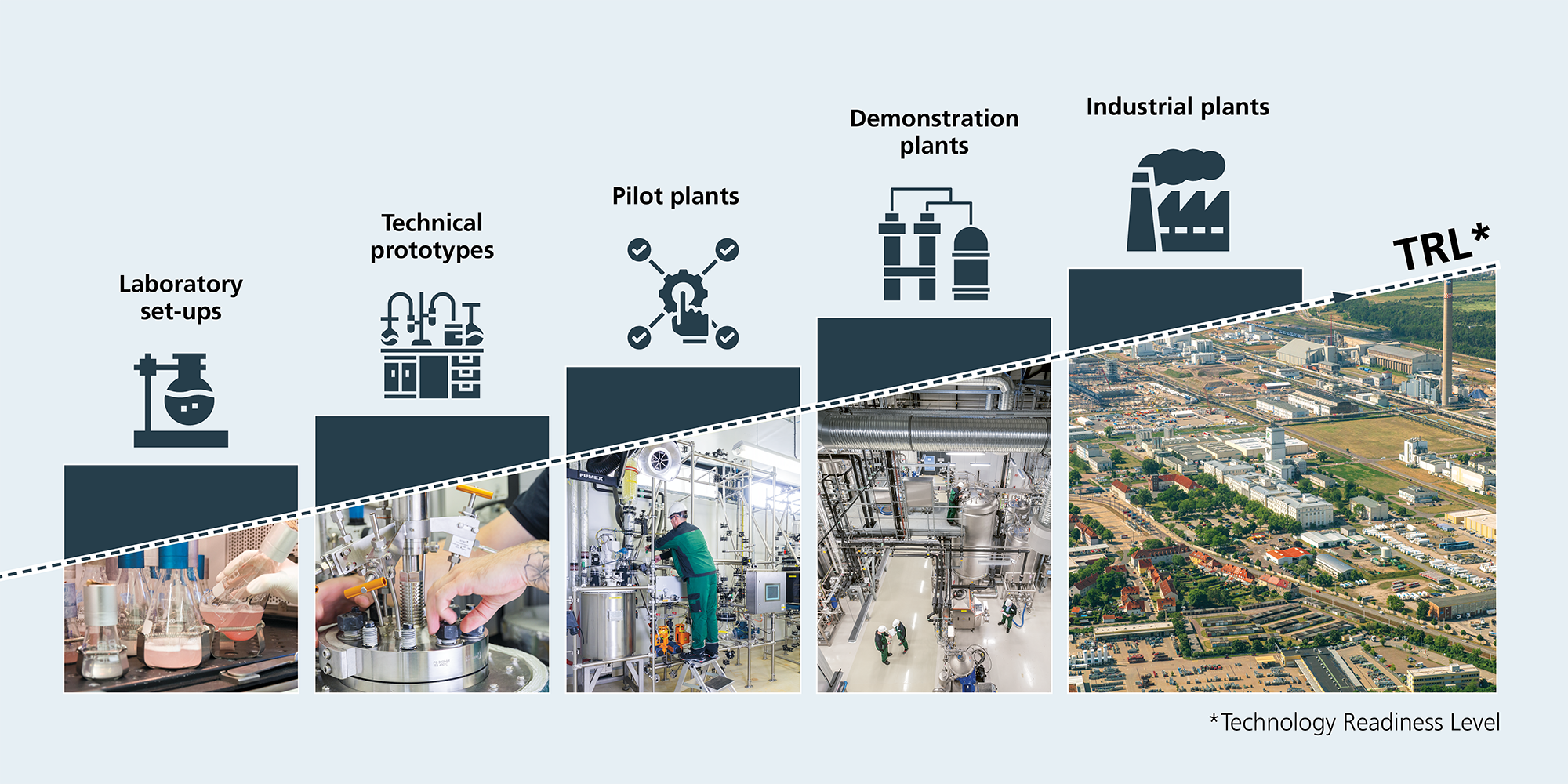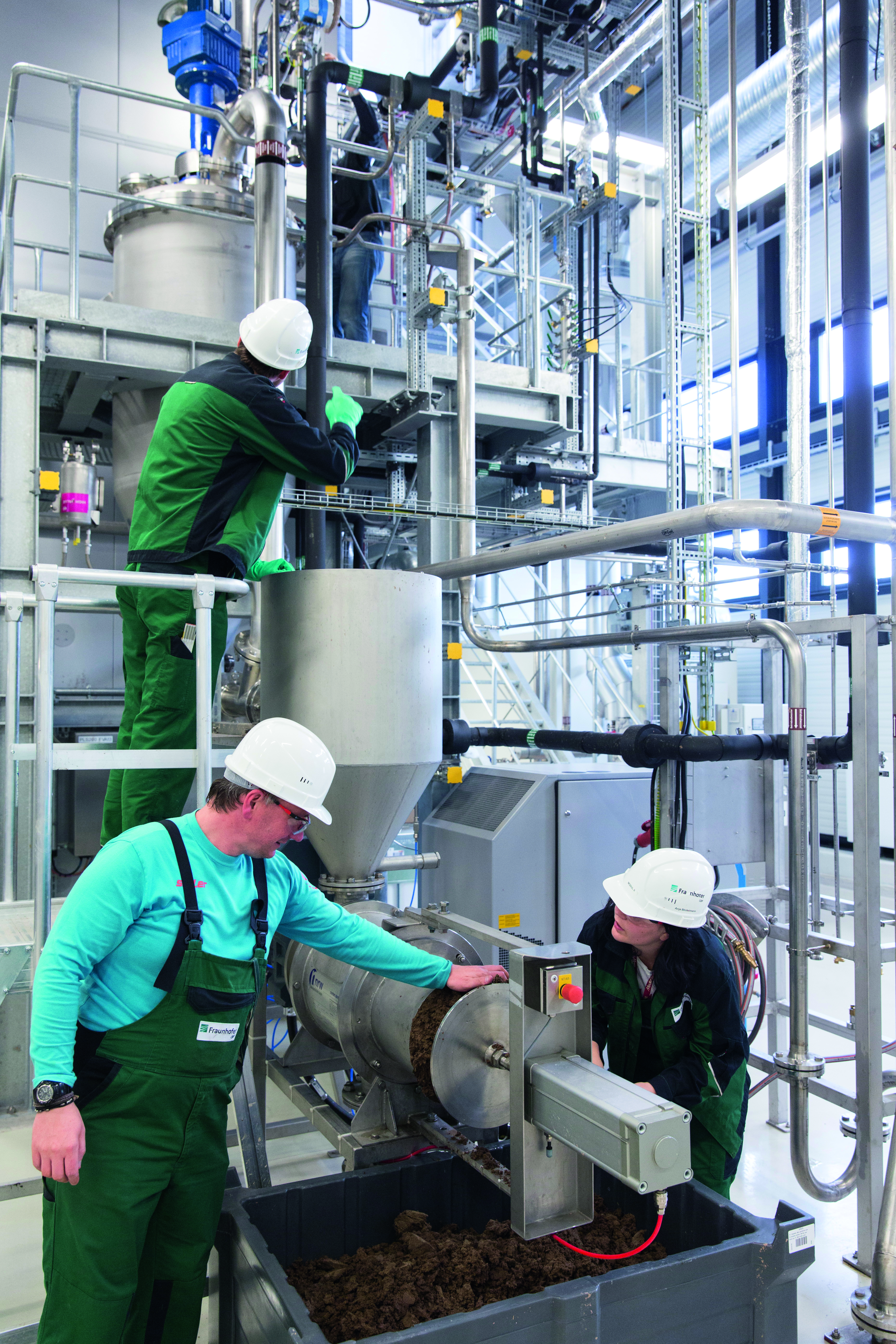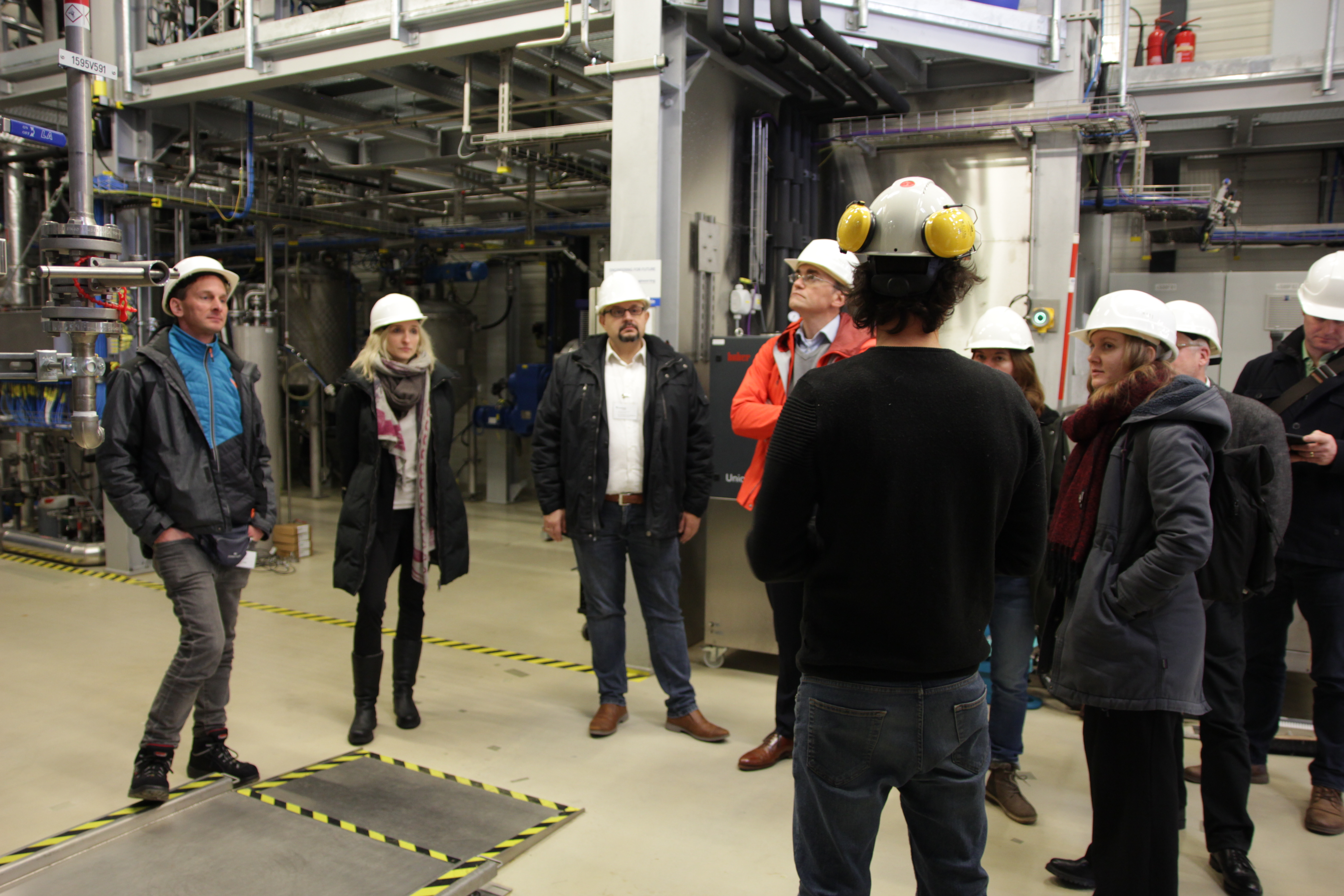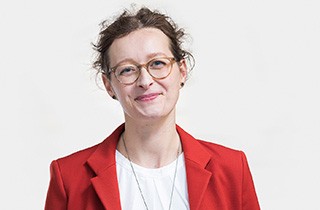In order to be able to manufacture larger product quantities, newly developed processes are gradually transferred to a larger scale. Upscaling results in differently dimensioned plants with increasing production capacities. Once an idea has been successfully implemented on a laboratory scale, the first technical prototypes are primarily used to test the quality and functionality of the product.
Small industrial scale: Pilot plants for process optimization
Pilot plants are an intermediate size between small prototype plants and large industrial plants. Pilot plants do not represent an enlarged laboratory scale, but rather the later industrial scale, albeit on a somewhat smaller scale. The aim of transferring processes to the pilot scale is therefore to operate the equipment commonly used in industry at a lower capacity, so that the risk of transfer from the laboratory to the industrial plant is minimized.
The example of fermentation illustrates this clearly: the laboratory tests take place in a shake flask, the subsequent stage is a small laboratory fermenter with a volume of only a few liters. For the pilot scale, fermenters that are also commonly used on an industrial scale are used – except that their volume is smaller.
Pilot plants: bridge between laboratory and industry – Data generation, optimization, configuration of the industrial plant
For the successful transfer to the next industrial dimension, the process is evaluated and optimized in the pilot plant. In the pilot plant, for example, the effect of the apparatus technology on the process, such as the container geometry, agitators or exotherms, becomes noticeable for the first time. Problems with the cultivation of microorganisms or product separation, which could not yet be assessed on a laboratory scale, can thus be resolved.
 Fraunhofer Institute for Interfacial Engineering and Biotechnology IGB
Fraunhofer Institute for Interfacial Engineering and Biotechnology IGB
